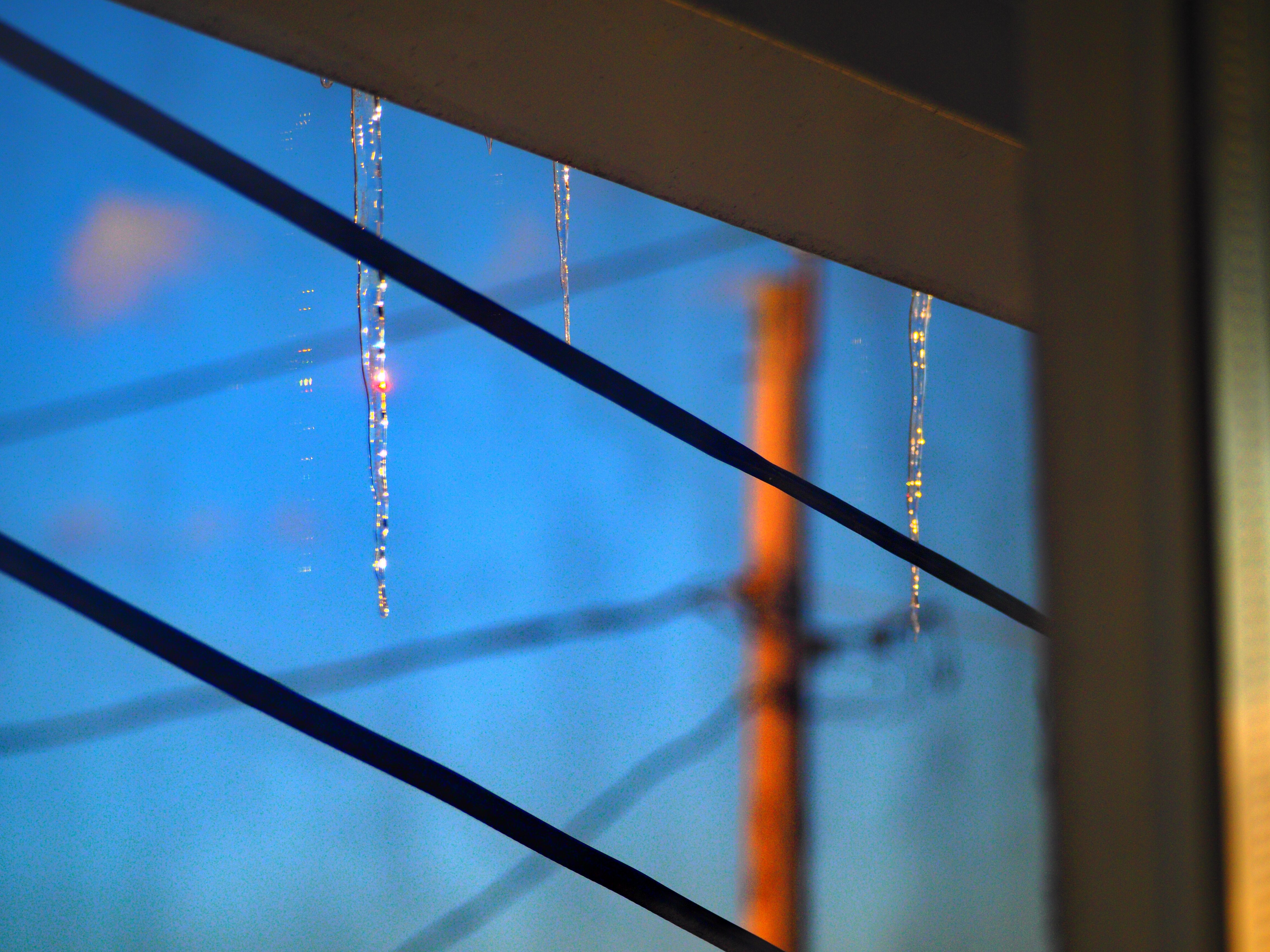-
Posts
44,789 -
Joined
Content Type
Profiles
Blogs
Forums
American Weather
Media Demo
Store
Gallery
Everything posted by LibertyBell
-
Yes, chikungunya is in the United States, though locally transmitted cases are rare and have not been reported since 2019 until a recent case was confirmed in New York. The virus is most commonly spread to the U.S. through travelers returning from endemic areas in other countries, such as Africa, Asia, and the Caribbean. Recent case: A locally acquired case was confirmed in Nassau County, New York, in October 2025, marking the first U.S. case of local transmission in six years. Primary mode of transmission: The disease is spread by mosquitoes, specifically the Aedes genus, which can be found in the U.S. and its territories. Travel-related cases: Before the recent New York case, most U.S. cases were from travelers who had visited areas where the virus is prevalent. Geographic history: Past local transmission has been identified in areas like Florida, Texas, Puerto Rico, and the U.S. Virgin Islands. Symptoms: The virus causes symptoms such as fever, joint pain, headache, muscle pain, joint swelling, and rash. While it is rarely fatal, symptoms can be severe and long-lasting.
-
Okay, just found it, well this mosquito borne illness is now in New York
-
Chikungunya Disease Definition: Chikungunya is a mosquito-borne viral infection that causes severe joint pain, fever, and other symptoms. Causes: The Chikungunya virus (CHIKV) is transmitted by the bite of infected Aedes aegypti and Aedes albopictus mosquitoes. Symptoms: Rash Fever Severe joint pain, often in the hands, feet, wrists, and ankles Headache Muscle pain Fatigue Nausea Complications: Most people recover from chikungunya within a week or two. However, some may experience chronic joint pain, fatigue, or other complications, such as: Arthritis, Eye inflammation, and Neurological problems. Treatment: There is no specific treatment for chikungunya. Treatment focuses on relieving symptoms, such as: Rest, Pain relievers, Fever reducers, and Fluids. Prevention: Avoid mosquito bites by wearing long-sleeved shirts and pants, using insect repellent, and staying indoors during peak mosquito biting hours. Remove standing water around your home where mosquitoes can breed. If traveling to areas where chikungunya is present, get vaccinated and take precautions to avoid mosquito bites. Additional Information: Chikungunya is endemic in many tropical and subtropical regions of the world, including Africa, Asia, and the Indian Ocean islands. The disease was first reported in Tanzania in 1953. The World Health Organization (WHO) declared chikungunya a global public health emergency in 2014.
-
One of the many side effects of a wetter climate no one talks about is the rise of mosquitoes carrying infectious diseases never before seen here (as well as other parasitic insects and worms.) Something I've noticed in our hot dry summers is very few mosquitoes, less predatory insects, much less mold and lower pollen levels. We should just cut down the foliage overgrowth if they can't handle the lower rainfall.
-
The problem with more rainfall is many more infectious mosquitoes plus other predatory insects as well as more mold and more pollen. I think it's better if we just chop down all this excess foliage. We now have a new infectious mosquito here which never lived here before carrying an exotic disease which we have never seen before. It's called Chimchungachunga Disease or something like that. A big positive with less rain I've noticed is much less in the way of mosquitoes and insects in general, fewer allergies and much less mold.
-
50 inches sounds way too much for this area and much more like the Gulf Coast. I think we're seeing a pattern of drier summers and somewhat wet winters, sort of like how we had in 1966-67. That was a very hot summer followed by a very snowy winter. Other combos like that were 1993-94, 1995-96, 2002-03, and 2010-2011. How do you compare the current pattern vs those three summer to winter couplets of dry summers followed by wet winters? Lots of snow after hot and dry summers too....
-

Winter cancelled/uncancelled banter 25/26
LibertyBell replied to Rjay's topic in New York City Metro
8:30 - 9 pm? I can see its attraction, but I don't find 7:30 - 8 to be very different lol -
I think we need to change the way we calculate these indices, if both the land and oceans are warming, a warm Atlantic doesn't mean the same thing as it did in the 80s. Either way getting 10 inches of rain in a month was unsustainable and shouldn't happen here anyway-- we don't live in a tropical rain forest. I think our rainfall is normalizing back around 40 inches of rain per year, which is where it should be.
-

Winter cancelled/uncancelled banter 25/26
LibertyBell replied to Rjay's topic in New York City Metro
Yes that's what I'm used to .... Bush really messed it up. 6 months of each is fine. -

Winter cancelled/uncancelled banter 25/26
LibertyBell replied to Rjay's topic in New York City Metro
Why do we have Daylight Savings Time all the way into early November? It makes zero sense right now, the sun rises well after 7 am and it's still dark here at 7:30. DST year round doesn't make as much sense as Standard Time year round does. The sun rising at 4 am in the summer is just fine, that's actually the best time to wake up in the summer. Either that or leave your blinds/curtains down. -
I got a spike in allergies because of a sudden rise in winds this morning
-
I think we are evolving into an AMO- pattern so this is why we have had a drier pattern now, it's to balance out all the wet years we had in past years.
-
Last 70 for the season Don? I think it's always highly suspect to predict the last 70 because it can be 70 in the middle of winter too, I remember we have hit 70 a few times in January including January 2006 here, 11 years to the day that we got the Blizzard of 1996 lol.
-
my allergies calmed down after around 2 PM, maybe the wind died down around then or did the humidity get lower? Or both lol
-
Yes 70 areawide including the south shore! It was sunny pretty much all day right up until sunset here too! TV Mets messed up the high again and said it was 69 lol
-
It reminds me of when the 1978 February Blizzard was predicted a week out, whatever happened to the model that did that anyway? We could use it with how poor skills the models have been showing for winter storms (or the lack thereof) the last several years.
-

Occasional Thoughts on Climate Change
LibertyBell replied to donsutherland1's topic in Climate Change
we might need to place some restrictions so children (under 18) aren't using it for their school projects, I feel like it discourages independent thinking. -
That might be adding to my allergies too-- wind plus humidity is a very bad combo
-
the warm weather is nice but the winds are torturing me with allergies it hit 72 here and didn't seem humid
-
too bad you could have hit 80 today still bright and sunny here but just too windy for me
-
what caused its drying out, lower rainfall totals over the past year?
-
Maybe even a Sandy type track? That pattern looks VERY familiar and the time of the month is right too.
-
dry summers and wet winters are exactly what we want
-
Maybe it will hook into our region like how Sandy did, the timing seems right, same time of the month that Sandy came here.
-
72 here but too windy


